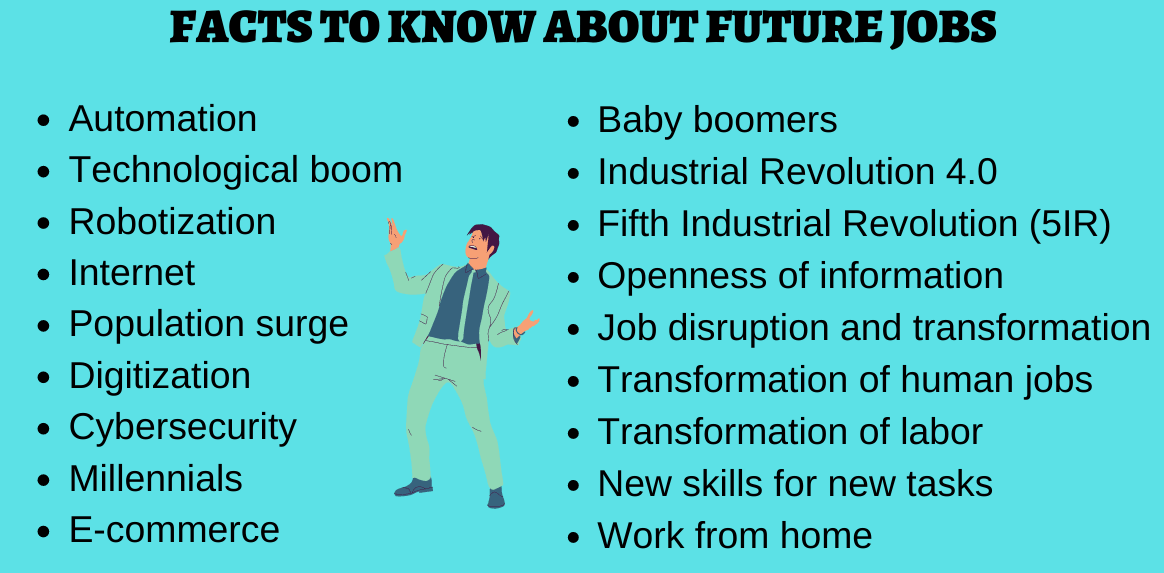What Does the Future Hold for Employment?

The workplace is rapidly changing. Machines and artificial intelligence are increasingly encroaching on current careers. More and more, you'll hear buzz words like energy strategies, artificial intelligence, robots, population pressures, climate change and globalisation. There are predictions of deprived futures, living on Mars, a better life and everything in between. What does this mean? Will humans increasingly collaborate with automated machines in their futuristic job roles? Do you currently have the skills necessary to realise this change?
World Wide Fund Australia (WWF) has recently released a report that conservatively states that renewable energy exports could create up to 395,000 new jobs across the country. They anticipate that within the next 20 years, the renewable energy export industry will value almost AUD $90 billion, which is more significant than Australia's current fossil fuel export industry. These changes will see an exciting array of opportunities for people with varying levels of education, experience, and training.
Jobs of the Future
Future thinkers anticipate a slew of new roles centred around necessary food science by 2040. These roles could include cultured meat scientists, food bank logistic officers, food as medicine nutritionists and 4D printed food technicians. Already, there is a surge in food science jobs, with scientists seeking plant-based meat alternatives and exploring packaging and harvesting strategies. These roles are positive for our planet and sustainable farming and cultivation, which is necessary for survival into the future. There are 11 wide-ranging categories anticipated in the new future roles; technology, people, law, business, environment, urban, agriculture, health, data, experience and space.
Advancements in virtual and augmented reality, together with the adoption of the internet of things, will see energy engineers, experts and architects avoiding ever working on a development site. Drone data analysts will likely conduct site inspections instead of physical site inspectors. There will also be roles in the digital twinning sphere which, through data, allows analysts to create virtual models that can run simulations, study operational issues and create possible improvements and solutions whilst generating valuable insights.
Wellness of the Future
Australia currently ranks 5 out of 35 developed countries for life expectancy. It's anticipated that data analysis, ownership and security experts will focus on the technology necessary for various wellness and care roles. Already catchphrases like 'radically interoperable data' is being discussed in Australia's hospital corridors, which, in a nutshell, imagines a future in which clinicians, patients and caregivers have secure access to comprehensive and patient-unique health information and treatment protocols.
Technology of the Future
Another industry that is forever developing is information technology. The future heavily relies on IT and there will be a limitless demand for creative and critical thinkers to provide solutions for effective and reliable products. According to SEEK, the leading job experts, recruiters will be discussing roles for AI translators, VR architects, human e-sources managers, auto advisors and AI ethicists. Whilst it marks extraordinary change, there are endless exciting opportunities for those that are curious. Year on year, there is an increasing demand for people with digital, STEM and STEAM skills which will help change world economies. It's important to embrace new education electives, so that future generations have these skills that will make their jobs more interesting and rewarding whilst giving them room to embrace personal values.
Labour market of the future
Understanding the jobs of the future will help tomorrow's youth understand the future labour market and how they can prepare for these opportunities. Over the last couple of years, the world of work has changed dramatically and is causing interesting disruption across various markets. Recruiters are already asking questions about what the youth's workplace will look like in 20 years and identifying trends, work patterns and skills. There will likely be a new fusion of skills and perspectives across different and multiple domains that will create new fields that will redefine the jobs of the future.
It's evident that over the next 10 years, almost every job will be affected in one way or another. Some jobs will vanish entirely and be replaced by those that are yet to be imagined. Already employment and entire fields are affected by technological advancements, climate change, the pandemic, robotics, the internet of things and vastly increased populations. Sectors such as education, manufacturing, hospitality, entertainment, and healthcare have changed forever. Living through such significant and world-changing times requires people to adapt and hone their collaborative capabilities, empathy, entrepreneurial skills and technical knowledge to remain employable. With this in mind, a vast proportion of the workforce will likely face a flux of lifelong learning, re-skilling and retraining.
Talent Shortages
Interestingly, employers across Australia report that they struggle to find skilled talent in new and emerging fields, which leads them to retrain and develop people internally. It’s commonplace that people with specialist skills are offered full-time employment on good salaries whilst those with replaceable skills are often not incorporated into the workplace and are forced to work on a part-time or freelance basis. It’s clear that fewer people can be expected to be employed on a permanent contract and will need to consider the various non-standard forms of employment. Thankfully more and more people are demanding a better work-life balance, and entire governments are appending these values to their new policies.
It's well-recognised that the pandemic has brought about a global economic recession and has deepened inequalities across world labour markets. Emerging technologies are reshaping these markets and have accelerated new trends that have arisen from the recession. Millions of workers across the globe face significant job uncertainty, and unemployment rates are at an all-time high. The fast-forward quickening of future work means that employers are set to expand the digitalisation of their work processes. While it might mean that some jobs are lost, new ones will be created with new ways of working and new skills.



